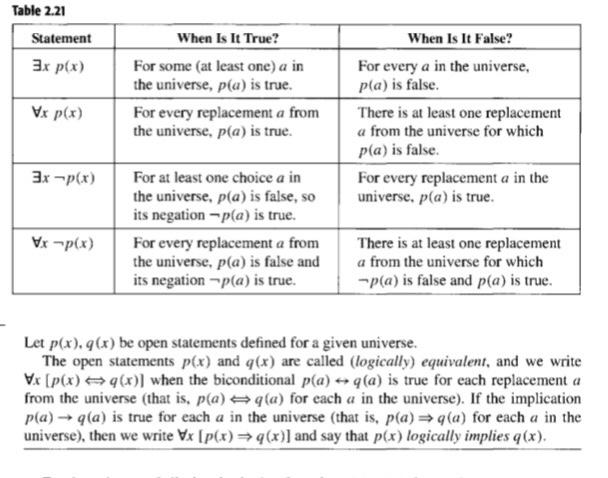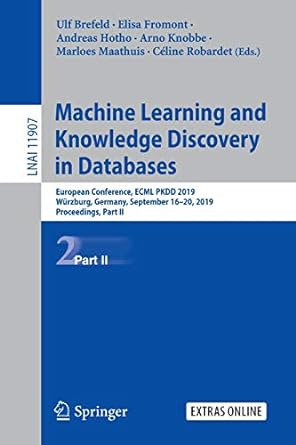Answered step by step
Verified Expert Solution
Question
1 Approved Answer
do no post any wrong answer / copy paste ans.. state away dislike ... Table 2.21 Let p(x),q(x) be open statements defined for a given
do no post any wrong answer / copy paste ans.. state away dislike ... 
Table 2.21 Let p(x),q(x) be open statements defined for a given universe. The open statements p(x) and q(x) are called (logically) equivalent, and we write x[p(x)q(x)] when the biconditional p(a)q(a) is true for each replacement a from the universe (that is, p(a)q(a) for each a in the universe). If the implication p(a)q(a) is true for each a in the universe (that is, p(a)q(a) for each a in the universe), then we write x[p(x)q(x)] and say that p(x) logically implies q(x) 
Step by Step Solution
There are 3 Steps involved in it
Step: 1

Get Instant Access to Expert-Tailored Solutions
See step-by-step solutions with expert insights and AI powered tools for academic success
Step: 2

Step: 3

Ace Your Homework with AI
Get the answers you need in no time with our AI-driven, step-by-step assistance
Get Started


